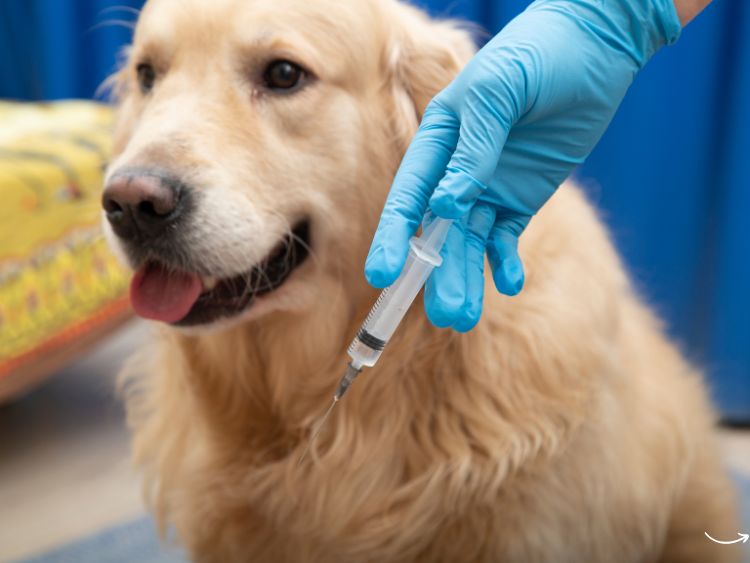Woof! Whether you’re a seasoned pet parent or a newbie, keeping track of your dog’s vaccination records is as crucial as remembering your own doctor’s appointments. You might be wondering, “Why all the fuss about vaccination records for dogs?” Well, vaccinations are the frontline defense against various infectious diseases, ensuring your furry friend’s health and safety. So, grab a leash, and let’s embark on a journey to understand why these records matter and how to manage them effectively.
Why Are Vaccination Records for Dogs Important?
Vaccination records for dogs aren’t just pieces of paper; they’re lifelines for your pup’s health. These records help:
- Track Vaccinations: Ensuring your dog receives the necessary shots on time.
- Prevent Diseases: Safeguarding against illnesses like rabies, parvovirus, and distemper.
- Compliance: Meeting legal requirements and boarding or travel regulations.
- Veterinary Care: Assisting vets in providing the best care based on vaccination history.
Essential Vaccines for Dogs
Let’s break down the must-have vaccines for your canine companion:
- Rabies: Mandatory by law in many regions. Protects against a fatal disease transmissible to humans.
- Distemper: Affects respiratory, gastrointestinal, and nervous systems.
- Parvovirus: Highly contagious, causing severe gastrointestinal issues.
- Adenovirus: Protects against hepatitis and respiratory diseases.
- Parainfluenza and Bordetella: Commonly combined in a single vaccine to protect against kennel cough.
Maintaining Vaccination Records
Keeping accurate vaccination records is vital. Here’s how you can manage them:
Paper Records
- Veterinary Records: Your vet will provide a copy after each vaccination. Store these in a safe, easily accessible place.
- Pet Passports: Essential for international travel, containing all vaccination details.
Digital Records
- Apps and Online Services: Numerous apps allow you to store and track vaccination records digitally.
- Veterinary Portals: Many clinics offer online portals where you can access your dog’s medical history.
Understanding Vaccine Schedules
Dog vaccination schedules can be daunting, but don’t fret! Let’s simplify it:
- Puppies: Initial vaccines start at 6-8 weeks, with boosters every 3-4 weeks until 16 weeks.
- Adults: Annual boosters or as recommended by your vet.
Common FAQs about Vaccination Records for Dogs
Why are vaccination records for dogs necessary?
Vaccination records ensure your dog receives timely vaccines, preventing deadly diseases and meeting legal and travel requirements.
How often should my dog get vaccinated?
Puppies need a series of shots starting at 6-8 weeks, with boosters every 3-4 weeks until 16 weeks. Adult dogs typically need annual boosters.
What if I lose my dog’s vaccination records?
No worries! Contact your vet for a copy. Many clinics also offer digital records accessible through online portals.
Can I vaccinate my dog myself?
It’s best to let professionals handle vaccinations to ensure they’re administered correctly and safely. Plus, vets can keep proper records.
Are there side effects to vaccines?
Most dogs experience mild side effects like soreness or lethargy. Serious reactions are rare but can include allergic reactions.
Tips for Keeping Your Dog’s Vaccination Records Up to Date
- Regular Vet Visits: Schedule annual check-ups to keep vaccinations current.
- Digital Backup: Use apps or online services to store copies of your dog’s vaccination records.
- Travel Preparation: Ensure your dog is up-to-date on vaccines before any trips. Check specific requirements for your destination.
- Boarding Facilities: Keep a copy of vaccination records ready for boarding or daycare stays.
Conclusion
Keeping vaccination records for dogs is a key part of responsible pet ownership. Not only do they protect your furry friend from serious diseases, but they also ensure compliance with legal and travel requirements. By staying organized and proactive, you can provide the best care for your dog. Remember, a healthy pup is a happy pup!
Authoritative Links for Further Reading:
- American Veterinary Medical Association: https://www.avma.org
- Centers for Disease Control and Prevention (CDC): https://www.cdc.gov
- World Small Animal Veterinary Association (WSAVA): https://www.wsava.org
Ensuring your dog’s vaccination records are up-to-date and easily accessible can make all the difference in their health and happiness. So, keep those records handy and your pup safe!

